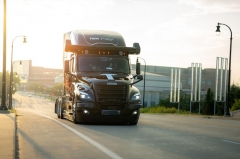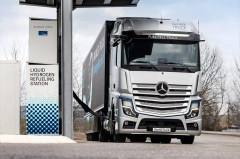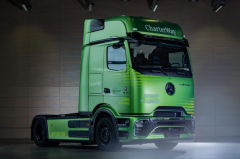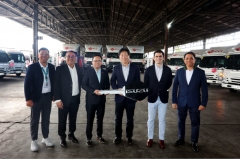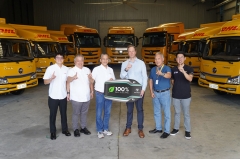
On March 14, 2023, the H2Accelerate partnership, a collaboration between major automotive entities in Europe, announced the successful acquisition of funding for two major initiatives. These include the deployment of eight heavy-duty hydrogen refueling stations through the European Union (EU) Connecting Europe Facility for transport funding instrument, as well as a 150 fuel cell truck project backed by the Clean Hydrogen Partnership. These initiatives aim to enable real-world testing of trucks and refueling equipment and represent a critical step towards the widespread commercialisation of hydrogen technology.
The H2Accelerate TRUCKS initiative is a partnership that brings together three top global OEMs (Daimler Truck, Volvo Group, and Iveco Group), the Finnish research institution VTT, the International Road Transport Union (IRU), the Romanian National Union of Road Transporters (UNTRR), the Italian association Federazione Italiana Autotrasportatori Professionali (FIAP), the Austrian association WKÖ, and Element Energy France (an ERM Group company).
Leading the coordination of the project is SINTEF, Norway's foremost research institute focused on hydrogen technologies. Additionally, energy infrastructure providers Shell, TotalEnergies, and Everfuel are among the supporters of the H2Accelerate TRUCKS endeavor.

“We are delighted to provide funding support to the H2Accelerate TRUCKS project, a flagship project which will pave the way for the commercialisation of Europe’s hydrogen trucking system. It is especially auspicious that these 150 vehicles deployed within this project will be supported by an expanding network of hydrogen refueling stations, which will include the H2Accelerate Inaugural Station Deployment project that has been selected to receive EU funding support. Through both projects, we can witness first-hand how different funding programmes can work together to accelerate the realisation of a hydrogen trucking ecosystem in Europe.”
The objective of this project is to finance the deployment of 150 fuel cell trucks throughout Europe, with a target timeline of the mid-to-late 2020s. This effort will support the development of the technology, paving the way for the three primary OEMs to move towards the mass production of these vehicles during the latter half of the decade. Initially, the first stage of deployment will focus on trucks with either 4x2 or 6x2 configurations, capable of carrying up to 44 tonnes, with extended ranges of at least 600 kilometers.
In order to support the deployment of these trucks, the partnership has also secured funding for 8 charging stations positioned across key Trans-European Transport Network corridors. The H2Accelerate infrastructure members have plans to expand their initial network with additional stations situated along strategic corridors connecting Scandinavia to Northern Italy in the future. These stations will cater to the increasing number of hydrogen-powered heavy-duty vehicles, including those utilized by the H2Accelerate TRUCKS initiative.
With the European Union supporting initiatives such as these, it seems that Europe is close to adopting hydrogen as an alternative fuel source for their transportation needs. What do you think? Should countries in Asia support the adoption of hydrogen fuel in transportation as well?


